What to Plant in Winter Sydney: Top Vegetables and Flowers for Your Garden
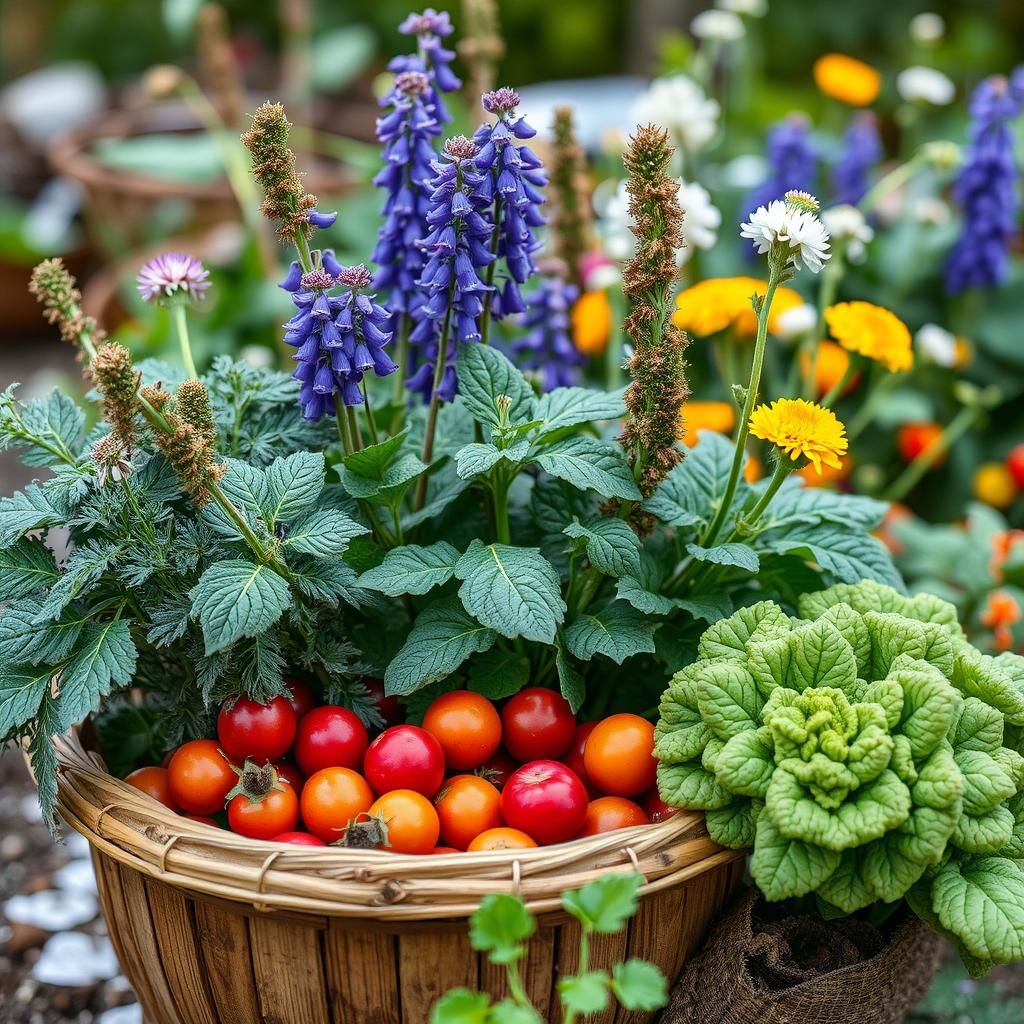
Winter in Sydney may not seem like the ideal time for gardening, but it's an excellent opportunity to cultivate a variety of vegetables and flowers. With the milder climate, many hardy plants thrive during these cooler months, offering a chance to enjoy fresh produce and vibrant blooms. This article will delve into the best vegetables and flowers to plant in winter Sydney, providing essential tips for gardeners looking to maximize their winter gardening efforts. Whether you're a seasoned green thumb or a beginner, you'll discover practical advice to help your garden flourish even in the chillier season.
What to Plant in Winter in Sydney
In winter, Sydney's climate offers a unique opportunity for gardeners to cultivate a variety of plants that thrive in cooler temperatures. While the weather may be chilly, some vegetables and flowers flourish during this time, making it essential to choose the right crops. Ideal options include winter vegetables such as carrots, broccoli, and spinach, which can survive frost and still produce a good harvest. Additionally, planting pansies and violaceas can add vibrant colors to your garden beds during the winter months. Utilizing protective measures like mulch or row covers can further enhance growth and protect against the elements, making winter gardening in Sydney both rewarding and enjoyable.
Best Vegetables for Winter Planting
When considering what vegetables to plant in Sydney during winter, options like kale, cauliflower, and peas are excellent choices. These crops are resilient to cooler temperatures and can withstand occasional frost. Kale is particularly popular due to its high nutritional value and ability to thrive in the cold, while cauliflower can be harvested throughout winter if planted early. Peas are another fantastic option, growing rapidly and providing a fresh harvest in a short time, allowing gardeners to enjoy succulent and crisp pods even in the cooler months.
Winter Flowers to Brighten Your Garden
To add color to your winter garden in Sydney, consider planting pansies, snapdragons, and cyclamens. Pansies are especially hardy and come in a broad range of colors, making them perfect for brightening up dull winter days. Snapdragons, with their unique shape and vibrant colors, can create stunning visual displays and thrive in the cooler weather. Meanwhile, cyclamens offer beautiful blooms and can be planted in shaded areas, adding charm to your winter landscape and providing a splash of color during the dreary months.
Soil Preparation for Winter Planting
Proper soil preparation is crucial for successful winter planting in Sydney. Begin by testing your soil's pH and nutrient levels to ensure they are suitable for the chosen crops. Amending the soil with organic matter like compost or well-rotted manure can enhance soil structure, improve drainage, and provide essential nutrients. Additionally, consider layering mulch on top of the soil to conserve moisture and prevent erosion. Preparing your soil adequately not only enhances your plants' growth potential but also creates a healthy environment for them to thrive during winter.
Watering Needs During Winter
Even though winter often brings cooler temperatures, plants still require adequate watering to remain healthy. In Sydney, it's essential to monitor moisture levels through the winter months, as rainfall may not always be sufficient. While plants like kale and broccoli can tolerate some dryness, regular watering helps maintain a consistent moisture level in the soil, promoting better growth. Using drip irrigation systems can be an efficient way to ensure your plants receive the water they need without saturating the soil. Adjusting your watering schedule based on weather conditions will be key to maintaining your winter garden's health.
Tips for Protecting Plants from Frost
Frost can pose a significant threat to winter gardens in Sydney, and it's vital to implement protective measures to safeguard your plants. One way to protect them is by using row covers or fleece blankets, which create a barrier against the cold while allowing light and moisture to penetrate. Additionally, mulching around the base of your plants can provide extra insulation and reduce soil temperature fluctuations. Planting frost-resistant varieties can also help ensure your garden remains productive during those unexpectedly cold nights. Monitoring forecasts and being proactive can make a substantial difference in protecting your winter crops.
| Plant Type | Best Varieties | Harvest Time |
|---|---|---|
| Vegetables | Kale, Broccoli, Spinach | 8-12 weeks |
| Flowers | Pansies, Snapdragons, Cyclamens | Winter blooms |
What vegetables to plant now in NSW in winter?

Winter-Friendly Vegetables
In New South Wales (NSW), winter offers a unique opportunity to grow a variety of hardy vegetables that thrive in cooler temperatures. Ideal choices include:
- Broccoli: A nutrient-rich vegetable that can withstand frost, making it perfect for winter planting.
- Cauliflower: Requires a cool climate to form its heads properly, making winter exceptionally suited for its growth.
- Brussels Sprouts: These can be sown from seed in late autumn for a winter harvest, developing a better flavor after frost exposure.
Benefits of Planting in Winter
Planting during the winter months in NSW brings distinct advantages. The benefits include:
- Reduced Pest Activity: Cooler temperatures mean fewer pests, allowing vegetables to grow with less threat.
- Better Flavor: Some vegetables, when exposed to cold weather, develop sweeter and more concentrated flavors.
- Less Competition: Winter gardens usually have less weed competition, making maintenance easier.
Soil Preparation Tips
Before planting, soil preparation is crucial. Here are some effective practices for winter gardening:
- Test Soil pH: Make sure your soil is adequately tested and adjusted for optimal plant growth.
- Amend Soil: Adding compost or well-rotted manure can enhance nutrient content and improve soil structure.
- Mulching: Applying a layer of mulch can help retain soil moisture and regulate temperature.
Watering Practices in Winter
Watering during winter requires a different approach due to lower evaporation rates. Effective practices include:
- Monitor Soil Moisture: Regularly check soil moisture levels as winter rains may reduce the need for watering.
- Water Early in the Day: If watering is necessary, do it in the morning to prevent frost formation overnight.
- Avoid Overwatering: It is crucial to avoid soggy soil, which can lead to root rot in cold months.
Pest and Disease Management
Winter does not exempt plants from pests and diseases. To manage these effectively, consider:
- Regular Monitoring: Keep an eye out for any signs of pests or disease following planting.
- Companion Planting: Utilize plants that naturally repel pests to protect your winter vegetables.
- Organic Treatments: Use organic solutions like neem oil or insecticidal soap to combat any pest issues.
What herbs to plant in winter in Sydney?

In Sydney, the winter months can be quite mild compared to other regions, allowing for a variety of herbs to thrive during this season. Winter planting is essential for ensuring a continuous supply of fresh herbs throughout the year. Here are some ideal herbs to plant in winter:
See also: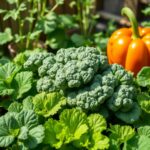
1. Cilantro: This herb is perfect for winter planting as it prefers cooler temperatures. It's versatile and can be used in numerous dishes.
2. Parsley: Another hardy herb, parsley can grow year-round in Sydney's climate. It's rich in nutrients and adds flavor to many meals.
3. Chives: Chives can withstand the cooler temperatures of winter and bring a mild onion flavor to salads, soups, and other dishes.
4. Thyme: This perennial herb is resilient and can survive winter's more chilly spells, making it a reliable choice for gardeners in Sydney.
5. Mint: While it can sometimes take over the garden, mint is a vigorous grower in winter and can be used in a variety of culinary applications.
Benefits of Growing Herbs in Winter
Growing herbs in winter has several benefits, particularly in Sydney's temperate climate. These include:
- Continuous Supply: Having fresh herbs available year-round enhances your cooking and meal preparation.
- Pest Resistance: Winter planting can minimize pest problems, as many insects are less active during the colder months.
- Healthy Gardening: Growing during winter keeps your garden productive and can help improve soil conditions.
Best Conditions for Winter Herbs
To ensure successful growth, understanding the best conditions for winter herbs in Sydney is essential. Key factors include:
- Soil Quality: Use well-draining soil that retains moisture without becoming waterlogged.
- Light Exposure: Position herb plants to receive as much sunlight as possible, ideally 6-8 hours a day.
- Temperature Management: Protect herbs from extreme cold by using mulch or row covers to trap heat.
Watering Tips for Winter Herbs
Proper watering is crucial for winter herbs to thrive in Sydney. Follow these tips:
- Water Sparingly: Herbs need less water in winter, so check the soil moisture before watering.
- Water Early in the Day: Watering in the morning helps prevent frost damage on the leaves.
- Use a Soaker Hose: This method allows for deep watering without over-saturating the soil surface.
Companion Planting with Winter Herbs
Companion planting can enhance the growth of winter herbs in your garden. Consider these pairs:
- Cilantro and Carrots: Cilantro can improve the growth of carrots and deter pests.
- Parsley and Tomatoes: Planting parsley near tomatoes can enhance flavor and bolster growth.
- Chives and Roses: Chives can help repel aphids from rose plants, making it beneficial for flower gardens.
Harvesting Tips for Winter Herbs
Harvesting your herbs properly ensures their vitality and flavor. Here are some tips:
- Cut Above Nodes: Always harvest above a node to encourage regrowth.
- Use Clean Tools: Keep your pruning shears clean to avoid spreading diseases.
- Harvest in the Morning: This is when herbs are at their most flavorful due to higher oil content.
When to plant bulbs in Sydney in winter?

To determine the best time to plant bulbs in Sydney during the winter months, it is essential to understand the local climate conditions and the types of bulbs suitable for this region. In Sydney, the winter season typically lasts from June to August, and the optimal time for planting spring bulbs is generally between May and early June. This timing allows the bulbs to establish their roots before the ground gets too cold.
Winter is usually the time when most gardeners prepare their gardens for the spring bloom. The soil should ideally be well-drained and not frozen, as this condition can severely affect bulb development. Additionally, gardeners should consider the specific types of bulbs they wish to plant, as some may require slightly different timing or conditions.
Choosing the Right Bulbs
When planning to plant bulbs in Sydney during winter, it’s crucial to select the right varieties. Not all bulbs thrive in the winter season, so choosing those specifically adapted to this climate will yield the best results.
- Daffodils: These hardy bulbs are excellent for Sydney's climate and can be planted in late May to early June.
- Tulips: While they prefer cooler conditions, they can still be planted in early June for a spring bloom.
- Irises: These bulbs do well when planted in winter, providing lovely blooms that can complement other flowers.
Soil Preparation
Proper soil preparation is vital for successful bulb planting. Before planting, ensure the soil is well-aerated and enriched with organic matter. This preparation contributes to healthy bulb growth and beautiful spring flowers.
See also: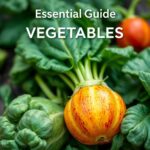
- Testing Soil pH: Ideally, the pH should be between 6.0 and 7.0 for optimal growth.
- Adding Compost: Enriching the soil with compost improves drainage and nutrient content.
- Tilling the Soil: Loosening the soil to a depth of at least 12 inches helps roots develop effectively.
Watering Requirements
Watering is a crucial aspect of bulb care after planting. Proper hydration ensures that the bulbs can establish and grow effectively. However, over-watering can lead to bulb rot, so timing and method are important.
- Initial Watering: After planting, water the bulbs lightly to settle the soil around them.
- Monitoring Moisture: Check the soil moisture regularly, especially during dry spells.
- Avoiding Overhead Watering: Use a soaker hose or drip irrigation to keep water directed at the roots.
Mulching Benefits
Employing a layer of mulch can provide several benefits for bulbs planted in winter. Mulch not only enhances aesthetics but also protects them from extreme cold temperatures and weeds.
- Insulation: Mulch acts as an insulator, keeping the soil temperature more stable.
- Weed Suppression: A good layer of mulch helps prevent weeds from competing for nutrients.
- Moisture Retention: Mulch retains soil moisture, aiding in bulb establishment.
Pest and Disease Management
Maintaining the health of the bulbs is crucial to ensure they flourish come spring. Being proactive about pests and diseases can prevent damage and promote healthy growth.
- Regular Inspections: Check the bulbs periodically for signs of pests or disease.
- Using Neem Oil: This natural pesticide is effective against common pests without harming the bulbs.
- Proper Spacing: Ensure bulbs are not overcrowded to facilitate airflow and reduce disease risk.
What plants can be planted in the winter?
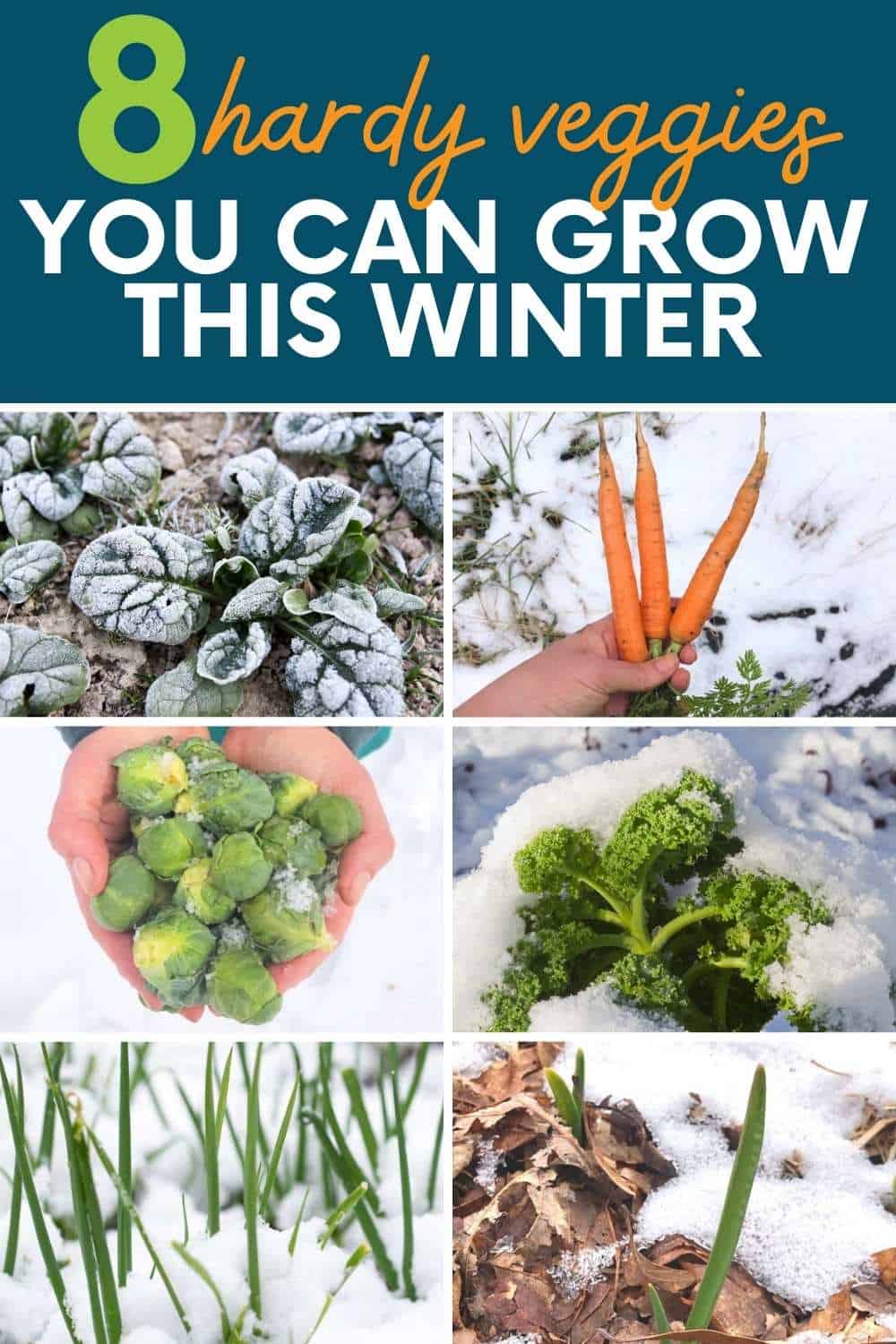
Planting in winter can be a challenge due to colder temperatures, but there are various plants that thrive during this season. Here are some options you might consider:
1. Winter Vegetables: Certain vegetables are resilient to cold weather and can be planted in late fall or winter for a spring harvest. These include:
- Garlic: Plant cloves in well-drained soil before the ground freezes.
- Onions: Overwintering varieties can be sown, and they will be ready for spring growth.
- Kale: This leafy green is hardy and can withstand cold temperatures.
- Spinach: It germinates in cool soil and grows well throughout winter.
- Carrots: They can be sown in late fall and harvested in early spring.
Vegetables Suitable for Winter Planting
Winter planting can be particularly beneficial for certain vegetables, allowing gardeners to enjoy fresh produce earlier in the year. Some vegetables that do well in winter include:
- Mustard Greens: Highly tolerant of cold and can be planted in late summer for a winter harvest.
- Beets: These can be sown late in the season and will be sweetened by frost.
- Swiss Chard: Hardy and continues to grow through winter months.
Herbs That Can Survive Winter
Several herbs can also thrive in winter conditions if placed in a protected area or in pots. They not only add flavor to dishes but can also enhance your garden's aesthetic. Consider planting:
- Parsley: This biennial herb can survive winter and continues to grow in cooler temperatures.
- Cilantro: Sow it in late summer for a fall/winter crop.
- Thyme: A hardy perennial that withstands cold weather well.
Cold-Tolerant Flowers
If you want to add some color to your garden during the winter months, consider cold-tolerant flowers that can withstand frost:
- Pansies: These resilient flowers bloom in cool weather and can last through winter.
- Winter Jasmine: Provides early blooms and is hardy in cold climates.
- Hellebores: Known as Lenten roses, they bloom in winter and early spring.
Cover Crops for Winter
Planting cover crops in winter can improve soil health and prevent erosion. These crops create a protective layer over the soil during the winter months:
- Clover: Excellent for nitrogen fixation and prevents soil erosion.
- Ryegrass: Grows quickly and provides excellent winter cover.
- Vetch: A legume that adds nitrogen to the soil while covering it during winter.
Starting a Winter Garden Indoors
For those in extremely cold regions, starting a winter garden indoors can be a fantastic alternative. Some plants to consider growing indoors include:
- Herbs like Basil and Mint: They thrive in indoor conditions if given enough light.
- Microgreens: Quick to grow and very nutritious, they can be harvested in just a few weeks.
- Start seedings for spring vegetables indoors: Such as tomatoes or peppers, to transplant outside when the weather warms.
Questions from Our Readers
What are the best vegetables to plant in winter in Sydney?
In Sydney's winter, the best vegetables to plant include broccoli, cauliflower, cabbage, and spinach. These crops thrive in cooler temperatures and can withstand the occasional frost, making them ideal for the season.
Can I plant herbs during the winter in Sydney?
Yes, many herbs can be planted in winter in Sydney. Hardy varieties like parsley, coriander, and thyme can grow well during the colder months, providing fresh flavors for your dishes.
How do I protect my winter plants from frost?
To protect your winter plants from frost, consider using mulch to insulate the soil, covering plants with frost cloth, or bringing potted plants indoors during freezing temperatures. These methods can help maintain a stable environment for your plants.
When should I start planting winter crops in Sydney?
You should start planting winter crops in Sydney around May to ensure they have enough time to establish before the colder weather sets in. This timing allows for a more fruitful harvest as temperatures drop.
See also: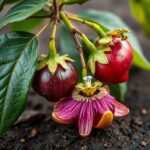

If you want to read more articles like What to Plant in Winter Sydney: Top Vegetables and Flowers for Your Garden, we recommend you check out our Seeds category.
Leave a Reply
Related Articles